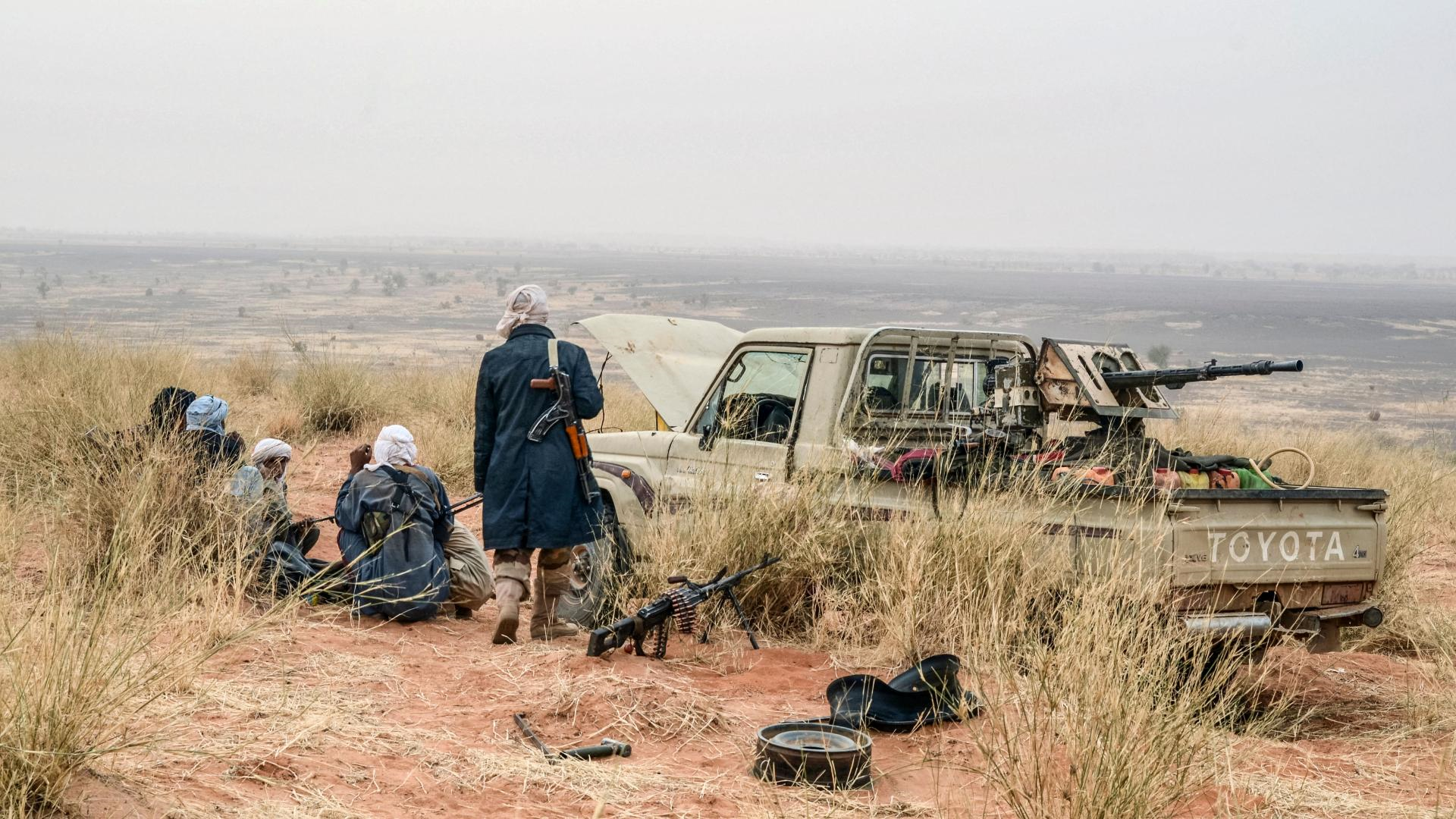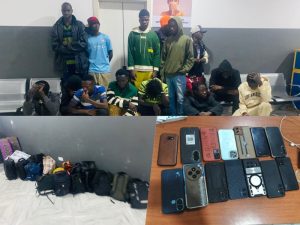Gambiaj.com – (DAKAR, Senegal) – A sweeping jihadist offensive just kilometers from the Senegalese border has raised alarm in both Senegal and The Gambia, underscoring the expanding reach of Sahelian militant groups and the vulnerability of the region’s vital economic lifelines.
At dawn on Tuesday, fighters from the Group for the Support of Islam and Muslims (GSIM), an Al-Qaeda-linked coalition, launched a coordinated and unprecedented series of attacks across seven localities in western Mali’s Kayes region. Among the targets were the strategic border town of Diboli and Kayes, the regional capital.
The offensive occurred just across Senegal’s eastern border and less than 100 kilometers from Gambia’s Upper River Region, effectively striking at the doorstep of two countries often viewed as insulated from the worst of the Sahel crisis.
The attackers used motorcycles and pick-up trucks to simultaneously hit Diboli, Nioro du Sahel, Molodo, Niono, Sandaré, Gogui, and Kayes itself—assaulting military camps, the airport, and even the governor’s residence. An amateur video verified by international media showed the local governor’s building in flames.
While Malian authorities claim to have killed more than 80 militants and seized weapons, vehicles, and motorcycles, the broader implications of the assault are deeply troubling.
GSIM has declared responsibility, asserting that it had seized multiple military positions and barracks—moves seen as attempts to project dominance and destabilize western Mali’s security infrastructure.
But the choice of Diboli, in particular, was telling. As the key border crossing where Senegalese trucks pass en route to Bamako, the attack on Diboli directly threatens the economic artery linking Dakar to Mali. With the rainy season already complicating overland transport, any disruption to this route could cripple Mali’s supply chains—and by extension, impact trade and security calculations in both Senegal and The Gambia.
“This attack is a red flag,” said a Bamako-based businessman quoted in French daily Le Monde. “Most of our goods come from Senegal. By targeting Kayes and Diboli, the jihadists aim to choke Mali’s economic lifeline.”
The broader message from GSIM is even more alarming. According to regional security observers, the assault signifies a strategic expansion by the jihadist group into Mali’s west—an area previously considered relatively stable and distant from the insurgency’s strongholds in central and northern Mali.
A study by Senegal’s Timbuktu Institute found that violent actions by GSIM in the Kayes region increased sevenfold between 2021 and 2024.
This deepening foothold suggests a slow but deliberate encirclement of Mali’s capital, Bamako, and a southward drift of the Sahel conflict toward the West African coast.
For Senegal—and by proximity, The Gambia—the threat is no longer theoretical. The attack came alarmingly close to Senegalese soil, and given the porous nature of borders in the region, Dakar’s eastern flank is now on high alert.
With The Gambia’s eastern boundary just next door, the risk of spillover cannot be ignored.
The Gambia, though not directly targeted, faces increasing exposure as the Sahel conflict seeps southward. The Kayes region is not only Mali’s economic lifeline but also home to major gold mines. Any long-term destabilization could disrupt mining, displace populations, and create new migration and security pressures across the region.
“This is no longer Mali’s problem alone,” warned a Sahel security analyst. “It’s now a subregional crisis, pressing right up against Senegal and The Gambia. If Kayes falls into chronic insecurity, the ripple effects will reach Dakar and Banjul.”
The attack thus raises urgent questions about border security, regional military cooperation, and the resilience of the economic corridor that ties Mali to Senegalese ports—and indirectly supports Gambian imports via Senegal.
With jihadist groups increasingly asserting themselves in zones once considered buffer areas, the need for a coordinated West African response has never been more urgent.










